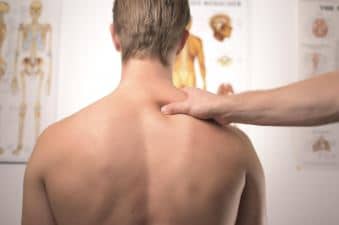Rotator cuff tears are one of the most common orthopedic injuries, particularly among active individuals. When a patient sustains a partial or complete rotator cuff tear, it can result in pain, weakness and restricted range of motion in the shoulder. Fortunately, the symptoms of a full or partial tear of rotator cuff tendons can often be alleviated with conservative methods.
Diagnosing a Torn Rotator Cuff
The appropriate course of treatment for a torn rotator cuff will depend on the nature of the tear, including its size, location and severity. In order to determine where rotator cuff damage is present and how severe it is, a sports medicine physician may use a number of diagnostic techniques. These include:
- – A thorough shoulder examination. The doctor will move and press on the shoulder in various areas to assess mobility, strength and overall functionality of the rotator cuff muscles.
- – Imaging such as an MRI or ultrasound. This will help the physician to determine precisely where damage is present and whether the rotator cuff tear is partial or complete.
Possible Treatments for a Partial Tear of Rotator Cuff
Generally speaking, patients who have sustained a partial tear of rotator cuff are typically able to get relief from their symptoms without surgery. There are a number of non-invasive treatment options which can help to promote healing of the rotator cuff.
For many patients, performing physical therapy exercises is a key step in making a full recovery from a partial thickness rotator cuff tear. Steroid injections and anti-inflammatory medications can also be of use for pain reduction and shoulder rehabilitation.
In the event that conservative methods fail to resolve a patient’s discomfort and restore strength/mobility to the shoulder joint, however, surgery may be suggested. In most cases, partial rotator cuff tears can be addressed with minimally invasive arthroscopic surgery. Depending on what percentage of the tendon is torn, surgical rotator cuff repair may or may not be needed.
Concerned About Lingering Shoulder Symptoms? See Dr. Soffer
If you suspect that you may have torn your rotator cuff, you’ll want to seek medical attention from a skilled orthopedic surgeon such as Dr. Stephen Soffer in Reading, PA. Specializing in the diagnosis of shoulder issues and creation of effective treatment plans, Dr. Soffer is a qualified choice for your care.
Whether your rotator cuff injury can be treated conservatively or requires surgery, you can count on Dr. Soffer to help you make a fast and full recovery. To schedule an appointment with him, call our 24-hour sports injury hotline at 610-375-4949.




